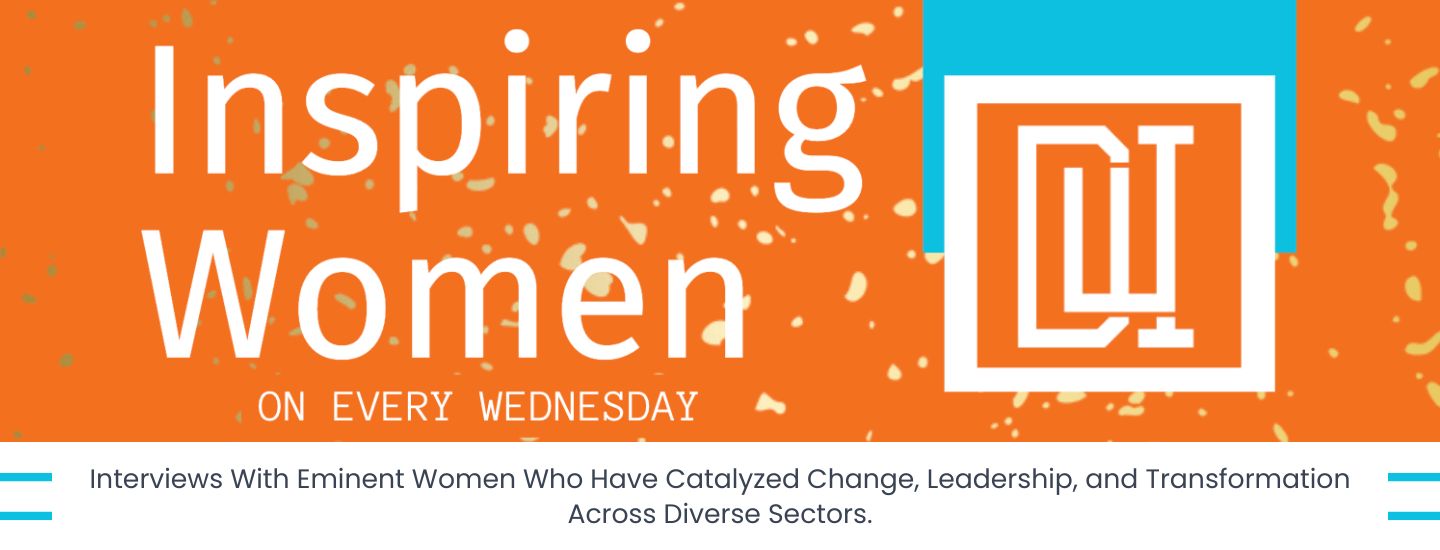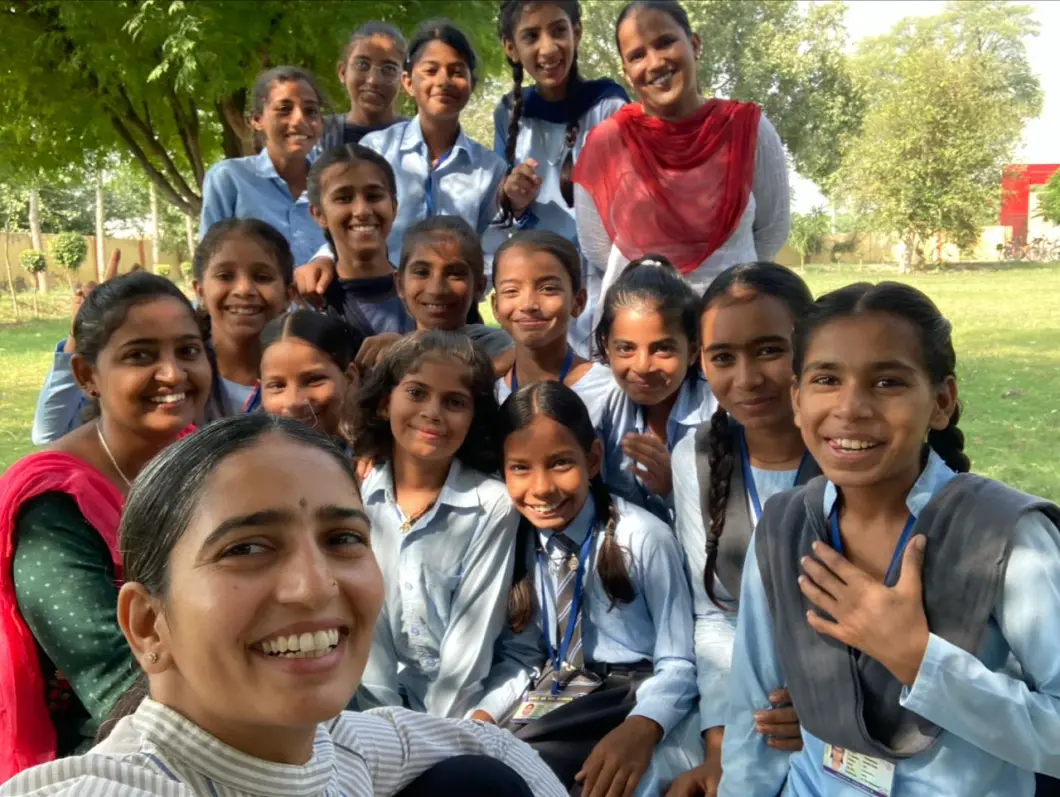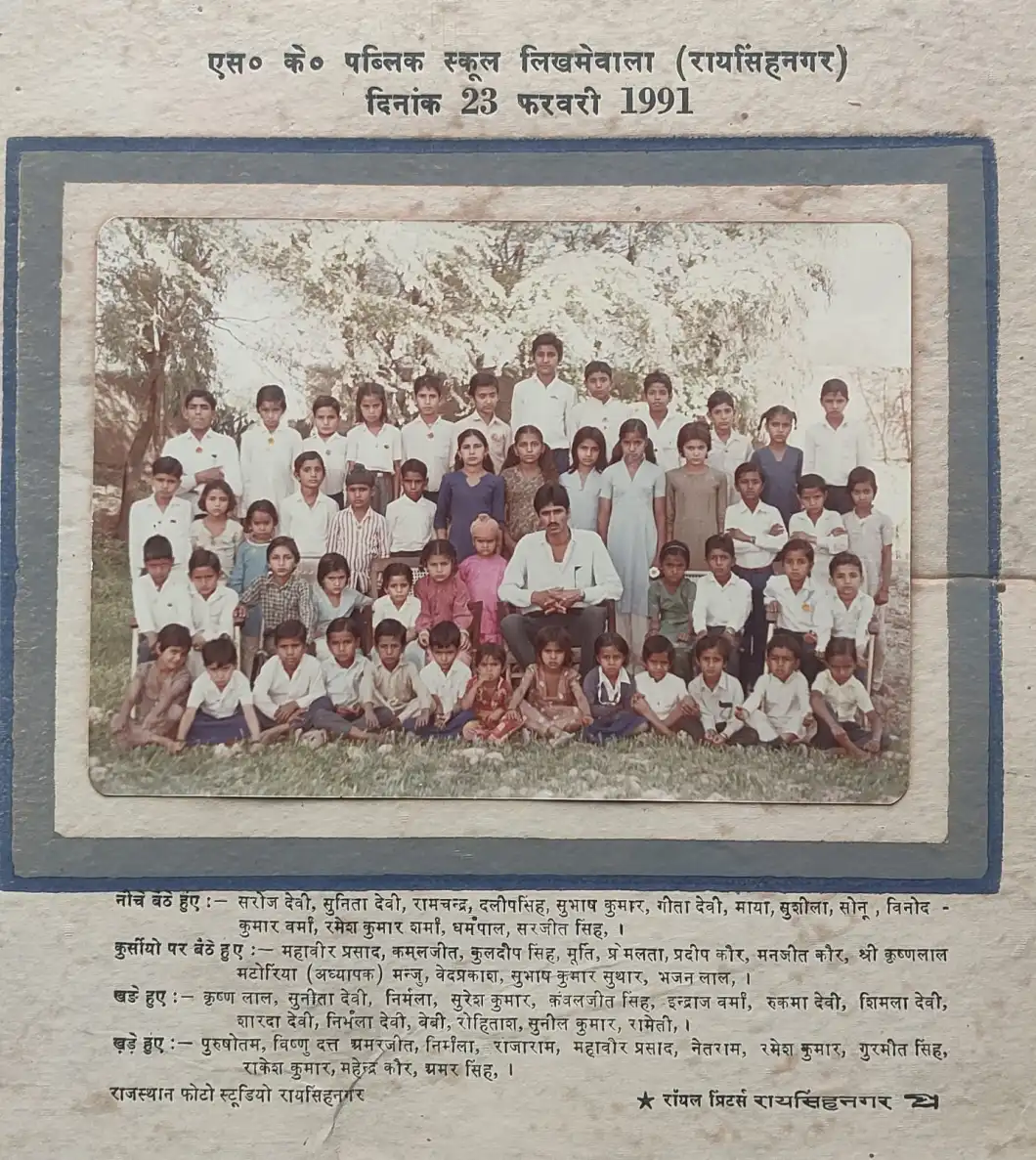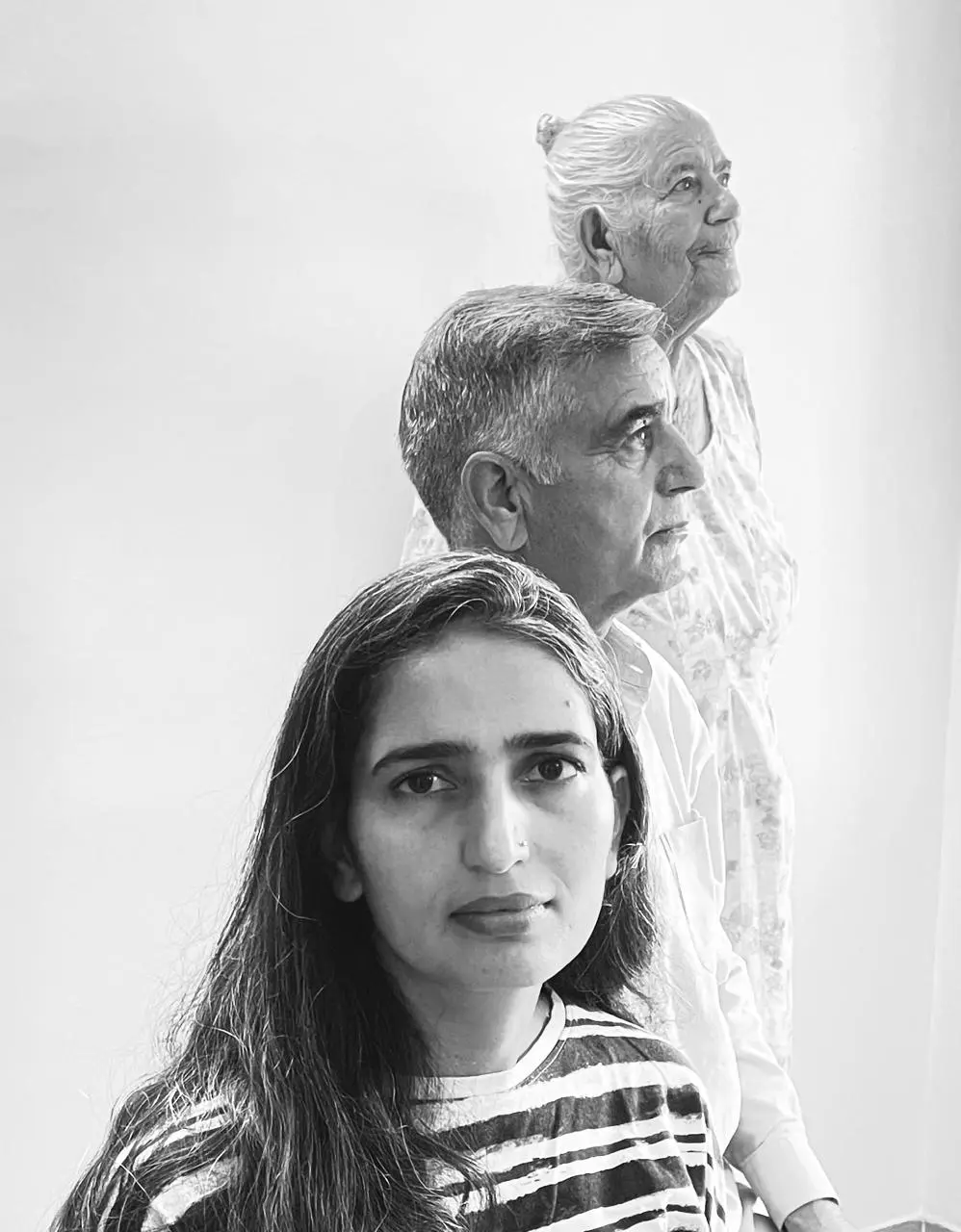

Author of the book ‘Borders Bridges Belonging’

Hamari Laado is an initiative built on the collective spirit of wanting to create a better future for our daughters in rural Bharat!
The Vision: To inspire and Enable girls with skills and confidence to achieve.
The Principles: We believe that all girls can achieve. – We believe all girls deserve an equal chance to succeed. – We believe in building skills and confidence for girls to have a chance!
The Programmes: 


Borders Bridges Belonging
It is a tale of two strikingly different worlds, and a journey through many layers of India – rural, small town, urban and global. The story begins with a family of farmers leaving their land and finding a home along the border during the partition of India. With many migrations, strong faith in education and constant pursuit of dreams, brings the author from her village to the American heartland. The book leaves us meditating on the role we play in being a bridge to the other part.
I grew up in a society that had embraced the darkness they had inherited, and I was living in one which was burning its own houses down for light. Was there really no middle way?
Premlata Poonia
Let’s Get Inspired
In Conversation with Premlata Poonia
– Preeti Juneja
Q. In your book “Borders Bridges Belonging,” you begin by reflecting on the generations preceding you: “My grandmother’s generation navigated the reality of borders, my parents crossed many bridges for our family, and my journey unfolded in pursuit of belonging.” Towards the end, you assert, “For five generations, Likhmalo has been the ordinary yet extraordinary starting, resting, and ending point. Somewhere within those points, I found my sense of belonging.”
Was it the emotional connection to the place ”Likhmalo,” or the aspirations of young girls toward education that ultimately brought you home to where you belonged?
The answer would be both and much more. Likhmalo and its journey, even after I left, became a specimen for me in terms of what is happening in girls’ education in rural Rajasthan or even general changes in rural areas. Coming from a village and constantly migrating for education were core to my journey and identity, however far I moved. And I knew no demand-supply logic would solve the issue of girls’ education in rural areas. I had to give my part to it. And yes, I feel so comfortable moving around the villages of Rajasthan compared to any other place. I know these places and their journeys more intimately than anything else. So I belong.

Q. Could you please elaborate on Hamari Laado’s NEEV programme? Once you raise hope in girls, how do you ensure they can achieve their dreams? Do you provide financial aid to top-performing girls?
Yes, the right question. We have programs that cater to the whole cycle. So, we do sponsor top-performing girls from rural Government schools. They are the first generation to complete high school, and we want to ensure they succeed and become new role models in their communities and make way for new social norms. NEEV is much more foundational at middle school – so girls develop the strength and confidence to go through high school well.
Q. “Bhape had provided me with another ticket aboard a new train of hope”; “Despite initial reluctance, your father eventually accepted, recognizing the importance of your decision to return home and empower girls. What gave you the confidence that this was the right path? And how do you evaluate the impact and success of your efforts? *Bhape – Father
I always told my family my hopes – to return and work for girls. But that was just an information. I went through the emotional journey leading up to it and was ready for it when I decided. I realized – Bhape’s emotional journey of internalizing it started after I made the final decision. So it took him time – not that he said anything to me, but you can sense. And the way society is – nobody he met said, “Oh, what a great decision”. People around were making all kinds of stuff up. So, he had a more challenging time making sense of himself and communicating with his set of folks. And much of it happened when I started taking him along and involving him in Hamari Laado’s work. It brought home the point for him.
Q. You have witnessed the journey of many women from different walks of life. Who inspired you, who supported you, who helped you achieve your dreams?
You read a lot about my family in the book and the role of each one of them. Family does give the biggest strength in terms of support. Maate, being such a high-spirited person, always gave us the strength, laughter, and stories to go on. So, nothing can replace that.
But as you said, I was very fortunate to meet some amazing women from different walks of life. At every phase and place of life, I found a group of women friends who went above and beyond. There are way too many to be able to share here. But I always talk about my boss at Tata Steel at that time. She gave me a month off to prepare for the GMAT, wrote my recommendation letter, and taught me how to care in real. It’s unbelievable what people do for you and how it changes the course of your life.
I got to be friends with Sarla while living in Columbus. She was in her 70s, had moved to the U.S. more than five decades ago and was probably the first Indian woman to attend Columbia Business School. Her life journey and her jest for life were so inspiring. It broadened my horizon on what I considered age to give, contribute, learn, grow, and live a good life. I recently saw her again when she was visiting Jaipur, and I hope to be a bit like her when I turn 80! And my yoga teacher, Sarah, who always gave her unconditional love and support.
Q. Transitioning from a remote village in Rajasthan to the heartland of America must feel like a remarkable journey. Your family likely experienced numerous cultural adjustments, navigating the transition from old traditions to embracing new ways of life. Did you never desire for your family to join you in America and experience the enhanced quality of life it offers?
Some things are hard to change – some values of spending money always stay the same. My younger sister visited twice, and I insisted on my parents visiting, but they didn’t think it was right to spend so much money. And I am like that in some ways, too.
Quality of life is undoubtedly questionable – they have such a whole life here in so many ways, so subjecting them to an experience of loneliness and being in a place where they don’t know the language is not an enhanced quality of life.
Rapid-Fire:
- How can the state government help in your initiative?
I would love to take NEEV to every village in India, so if we can get help to pick more villages across aspirational districts, that would be great.
2. Have you been successful in drawing the attention of the Indian community abroad to invest in Girl Child Education in India?
The last three years have been all-hands an all-hands-on-deck approach in terms of spending all energy at the grassroots level – experimenting with the program in villages – and understanding what works and what needs to be refined. We have yet to start any efforts on outreach.
3. What are the current problems in remote villages of Rajasthan?
A lot of transformation has happened. I see five things in most villages, even among the poorest – a Prime Minister Awas House, Ujjawala Gas Connection, Bank account, Aadhar, and Ration. In Rajasthan villages, panchayat schools were upgraded to 12th grade by the Vasundhara govt in 2016-2017. The more challenging part starts – where the day-to-day human interface exists.
4. The memoir’ Border Bridges Belonging’ is very inspirational. Do you plan to translate this into regional languages for school libraries in India?
I would love to. Many readers have commented about the need to have it in every library. If we see interested folks, we would do that.
One-Liners:
1 The protagonist of my book is: Our Country
2 One quality in your family that became your strength is: Simple Living
3 A running programme is good for girls because: The change is embodied
4 Next, I want to: Build partnerships to take NEEV to every village

About Author

Premlata Poonia
Premlata Poonia was raised in the remote village of Likhmewala in Rajasthan, situated along the border of India and Pakistan. Despite facing several migrations, she attained her BA degree from Maharani’s College, Jaipur, and pursued her Master’s at IMT Ghaziabad. Subsequently, Premlata relocated to the United States to pursue an MBA at the University of Michigan. Following her studies, she settled in the quaint town of Columbus, Indiana, where she lived and worked.
After spending a decade in the US, she returned to her village with a mission to launch Hamari Laado, an initiative aimed at advancing girls’ education and empowerment.
In her last corporate position, she spearheaded the $1 billion North America bus business at Cummins Inc. Through previous roles in Sales & Marketing, Corporate Social Responsibility, and Human Resources, she had the privilege of collaborating with global teams, overseeing global initiatives, and engaging with numerous manufacturing facilities.
14th February 2024
Share this article
Inspiring Women
Share this article
Do you have a question for Premlata Poonia ? Write to us at preeti.juneja@dreamwebindia.com










